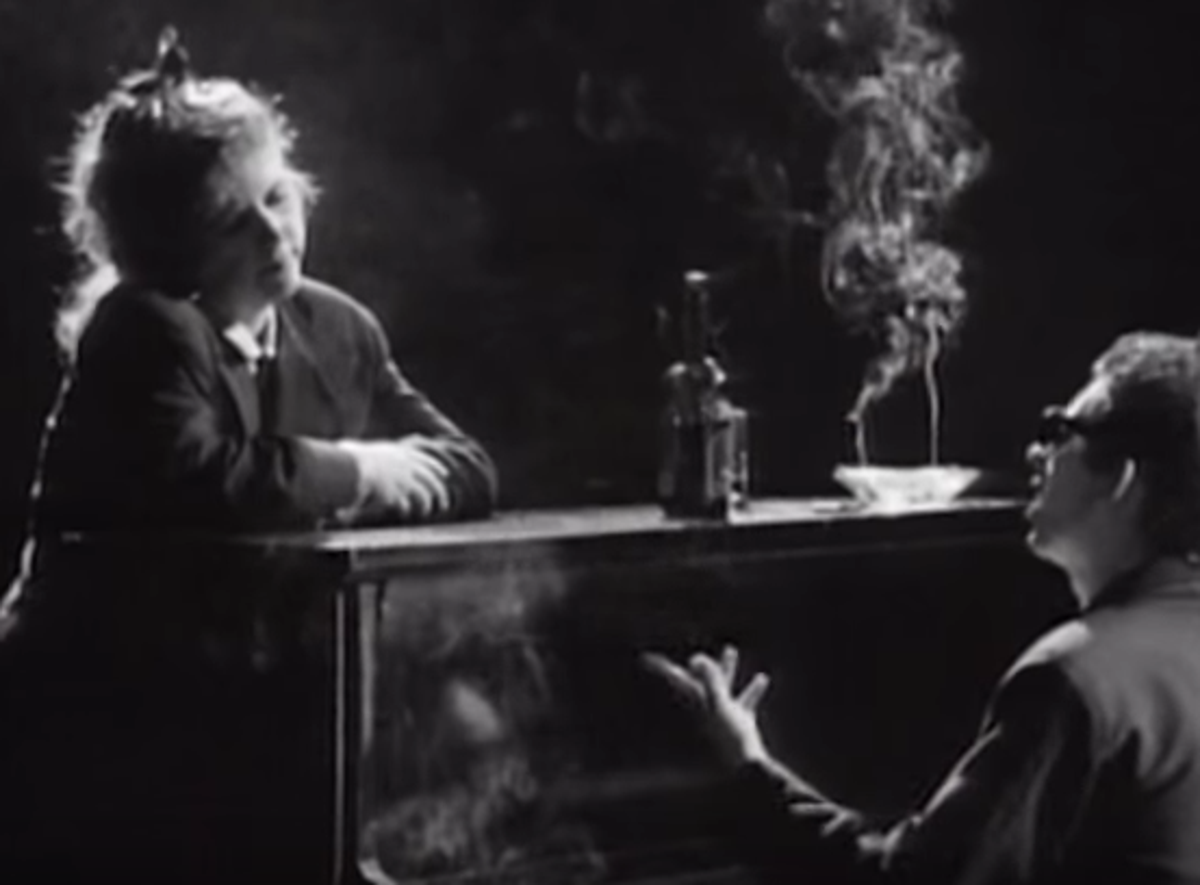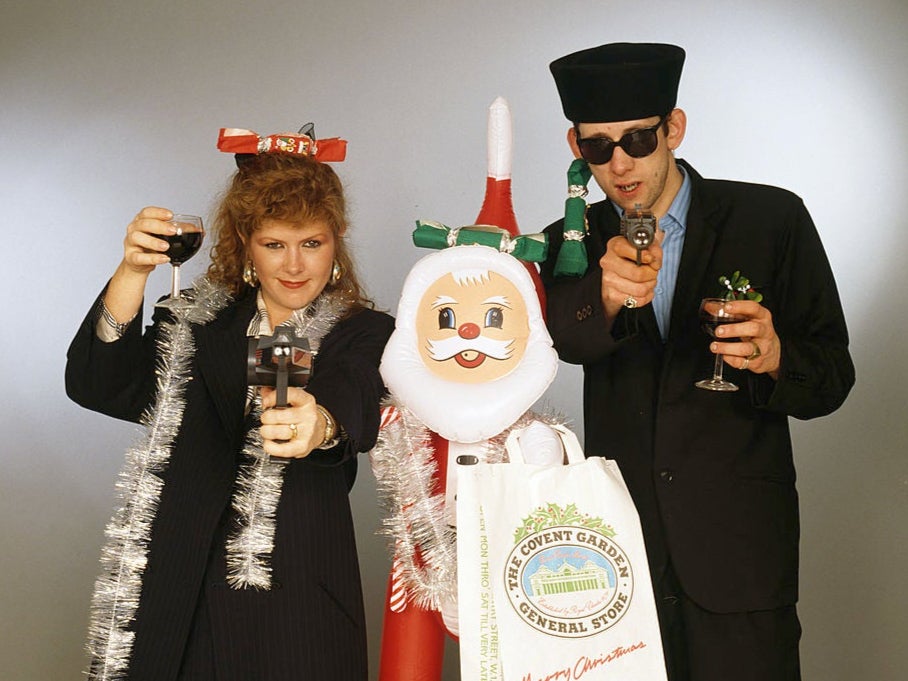
“Fairytale of New York” is a drunken hymn for people with broken dreams and abandoned hopes. It is, therefore, a perfect contrast to some of the perkier perennial favourites we wheel out each Christmas.
The song begins with its narrator, an Irish immigrant, being thrown into a drunk tank to sleep off his Christmas Eve binge.
Hearing an old man sing the Irish ballad “The Rare Old Mountain Dew”, he begins to dream about his memories of the female character in the song, and so begins the story of two people who fell in love in America, only to see their plans of a bright future dashed.
Some of the best songs combine uplifting instrumentation with lyrics that are downright miserable, and such is the case for “Fairytale of New York”. It has none of the gooeyness of Mariah Carey’s “All I Want For Christmas Is You” or Wham!’s “Last Christmas”.
Shane MacGowan’s slurring, bitter delivery of those opening vocals is played out over romanticised piano chords. Then to those wonderful, jaunty strings and Terry Woods’ mandolin.
MacGowan and Kirsty MacColl really get into their roles, and their call and response lyrics are brilliant, filled with sass. He calls her a slut and a junkie, she calls him a punk and a maggot... and there’s an underlying, albeit dark humour through it all. As it closes the chorus each time, you can picture the two characters staggering around the city, screeching at each other.
In 2007, Radio 1 removed the words “slut” and “faggot” from the song, backtracking when the move received criticism from the public and MacColl’s mother, who said censoring the words was “too ridiculous”. However, in recent years more radio stations have chosen to play a censored version, mostly due to the homophobic context of the word “faggot”.
MacGowan himself later said he took no issue with the song being censored. In 2018, he shared a statement that said: “The word was used by the character because it fitted with the way she would speak and with her character.
“She is not supposed to be a nice person, or even a wholesome person. She is a woman of a certain generation at a certain time in history and she is down on her luck and desperate.”
He continued, “Her dialogue is as accurate as I could make it but she is not intended to offend! She is just supposed to be an authentic character and not all characters in songs and stories are angels or even decent and respectable, sometimes characters in songs and stories have to be evil or nasty in order to tell the story effectively.”
“If people don’t understand that I was trying to accurately portray the character as authentically as possible then I am absolutely fine with them bleeping the word but I don’t want to get into an argument,” he concluded.
There are differing views on how “Fairytale of New York” came to be. MacGowan, who was born on Christmas Day in 1957, claimed that Elvis Costello bet him that he wouldn’t be able to write a Christmas duet to sing with bass player Cait O’Riordan (Costello’s future wife).
Accordion player James Fearnley claimed that their manager Frank Murray suggested they cover the Band’s 1977 song “Christmas Must be Tonight”.
“It was an awful song,” Fearnley writes in his memoir Here Comes Everybody: The Story of The Pogues. “We probably said. ‘F**k that, we’ll do our own.’”

It took more than two years to perfect, and was recorded, oddly, in the sweltering heat of July 1987, at RAK Studios near Regent’s Park in London. The original plan to record with O’Riordan fell through when she married Costello and left the band. Costello was replaced with Steve Lillywhite, who brought in his wife (MacColl) to record the test vocals so they could see how the duet would work. They were so astounded by her performance, however, that they had to keep it.
The title was chosen after the song had been written and recorded, lifted from the title of Irish American author JP Donleavy’s novel A Fairy Tale of New York. The book’s main character, Cornelius Christian, refers to New York as “the city that is too rich to laugh at and too lonely and too ruthless to love and where happiness is a big cat with a mouse on a square mile of linoleum”.
The video is as much part of the song as the music itself; Kirsty MacColl leaning nonchalantly over the piano and telling Shane MacGowan how useless he is. It was decided that he would sit there instead of Fearnley, who said that he was “humiliated”, particularly when he had to wear MacGowan’s rings for the close-up shots of his hands.
A young Matt Dillon stars as the cop who has to arrest MacGowan – he was already a big fan of The Pogues and reportedly so nervous about manhandling him in the scene that MacGowan snapped: “Just kick the s**t out of me and throw me in the cell and then we can be warm!”
The song provided a launching pad for the mainstream success of both The Pogues and MacColl, the latter of whom had ambitions of being a pop star but was crippled by severe stage fright. The song never made it to the Christmas number one spot in the UK, but remains one of the most popular festive songs of all time.
This article was originally published in 2017







